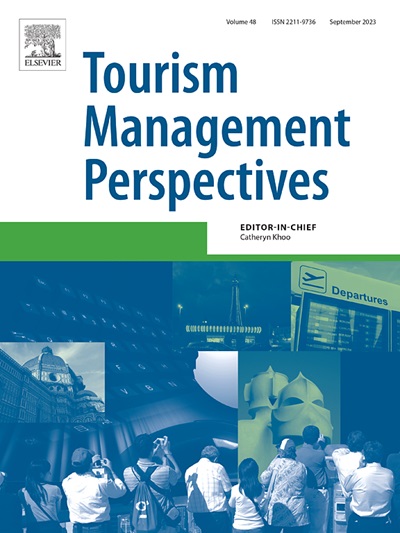揭示极端和夸张的酒店在线评论的有用性:消费者和品牌影响因素
IF 6.9
2区 管理学
Q1 HOSPITALITY, LEISURE, SPORT & TOURISM
引用次数: 0
摘要
在数字时代,极端评论吸引了最多的关注,了解它们对消费者决策的影响变得至关重要,尤其是在酒店业。本研究探讨了消费者对极端和夸张的正面在线酒店评论的有用性的看法。具体而言,我们探讨了消费者特质(购买冲动和易受网络影响)和酒店品牌声誉在形成这些看法中的作用。此外,我们还研究了品牌熟悉度如何调节这些影响。我们的研究结果表明,冲动会增强帮助性,但仅限于熟悉品牌的消费者。相反,对于品牌熟悉度较低的消费者来说,易感性会降低帮助性。无论熟悉程度如何,品牌声誉都会对乐于助人程度产生一致的积极影响。对于不太熟悉酒店品牌的消费者来说,帮助性对预订意向的影响更大。这些见解有助于加深对评论有用性的理解,并为酒店企业管理在线评论和品牌战略提供了可操作的启示。本文章由计算机程序翻译,如有差异,请以英文原文为准。
Unlocking the helpfulness of extreme and exaggerated hotel online reviews: Consumers and brand influences
In the digital age, where extreme reviews capture the most attention, understanding their influence on consumer decision-making becomes crucial, particularly in the hospitality industry. This research examines consumers' perceptions of the helpfulness of extreme and exaggerated positive online hotel reviews. Specifically, we explore the role of consumer traits (buying impulsiveness and susceptibility to online influence) and hotel brand reputation in shaping these perceptions. Additionally, we examine how brand familiarity moderates these effects. Our findings reveal that impulsiveness enhances helpfulness, but only for consumers familiar with the brand. Conversely, susceptibility decreases helpfulness for consumers with low brand familiarity. Brand reputation displays a consistent, positive impact on helpfulness, irrespective of familiarity. The impact of helpfulness on booking intentions was stronger for consumers less familiar with the hotel brand. These insights contribute to the understanding of review helpfulness and provide actionable implications for hospitality businesses in managing online reviews and brand strategies.
求助全文
通过发布文献求助,成功后即可免费获取论文全文。
去求助
来源期刊

Tourism Management Perspectives
Multiple-
CiteScore
15.60
自引率
3.40%
发文量
99
审稿时长
59 days
期刊介绍:
Tourism Management Perspectives is an interdisciplinary journal that focuses on the planning and management of travel and tourism. It covers topics such as tourist experiences, their consequences for communities, economies, and environments, the creation of image, the shaping of tourist experiences and perceptions, and the management of tourist organizations and destinations. The journal's editorial board consists of experienced international professionals and it shares the board with Tourism Management. The journal covers socio-cultural, technological, planning, and policy aspects of international, national, and regional tourism, as well as specific management studies. It encourages papers that introduce new research methods and critique existing ones in the context of tourism research. The journal publishes empirical research articles and high-quality review articles on important topics and emerging themes that enhance the theoretical and conceptual understanding of key areas within travel and tourism management.
 求助内容:
求助内容: 应助结果提醒方式:
应助结果提醒方式:


